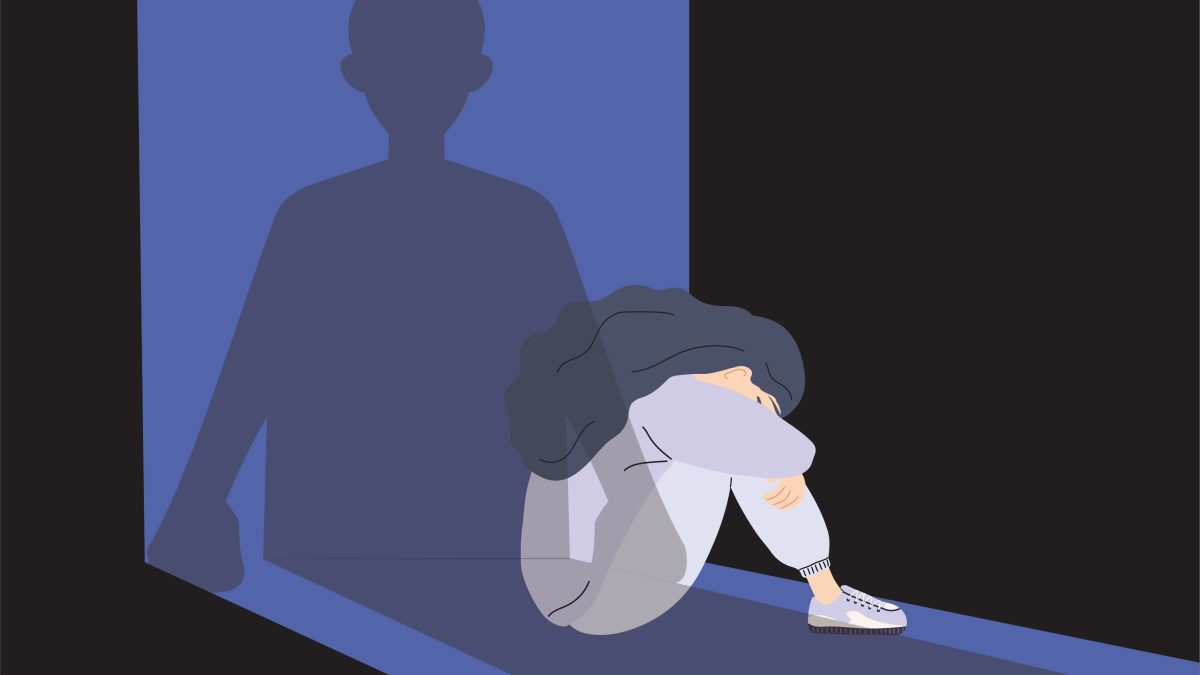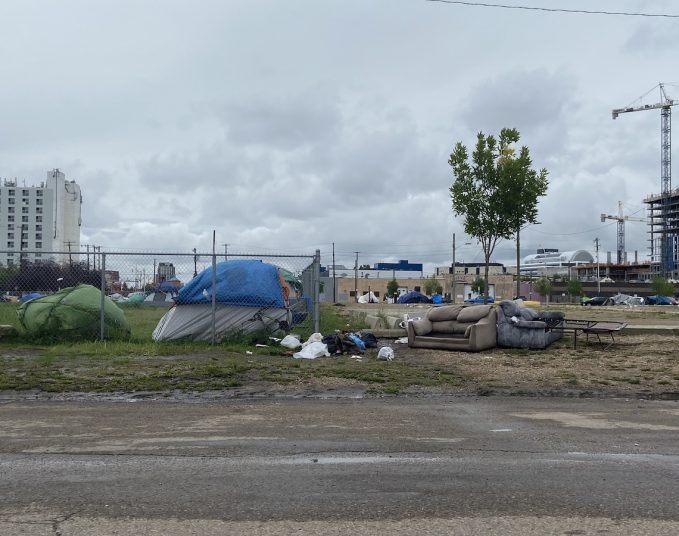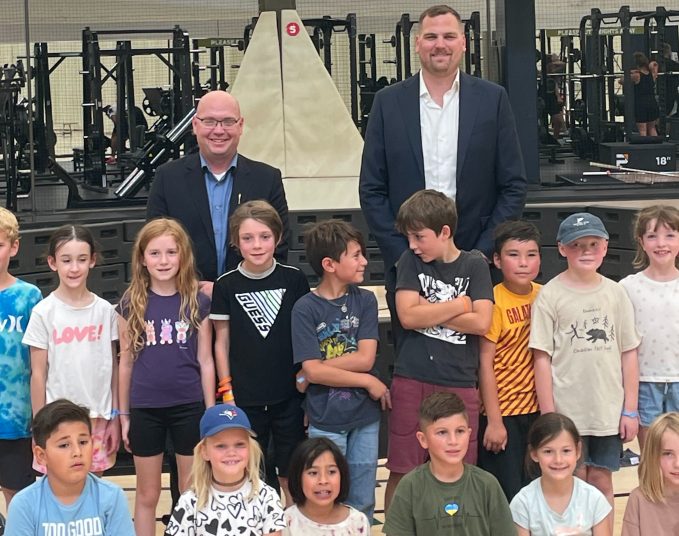This week, Urban Affairs had a round-table discussion with the directors of three Edmonton charities — WIN House, Wings of Providence and Shelter Movers — that offer support to victims of domestic violence.
They painted a stark and worrying picture. Since the pandemic began, the number of cases have gone up, and the financial pressures families continue to face only make the stresses worse. Several times, they used the term “perfect storm” to describe the situation we’re in when it comes to family and gender-based violence.
The Alberta Council of Women’s Shelters 2023 contains some truly scary statistics. In 2022-23, shelters answered 59,215 calls for help. And, of the survivors who answered the survey “more than 65 per cent were at severe or extreme risk of being killed by a current or former partner.”
WIN House serves as the first line of help for women looking to escape abusive situations. But the charity is so oversubscribed, that executive director Leslie Allen said that WIN had to turn away 2,000 women this year.
“That speaks to the need and the provisions we actually have here,” she said.
How did we get here? And how do we help?
THE INCREASE
The pandemic put together so many ingredients that fuel domestic violence. Financial pressures were added to many families; restless, bored kids were at home; and domestic partners were under the same roof 24/7, without any respite when one or both left the home for work.
Calls for help skyrocketed, and haven’t abated since.
WIN House has 60 beds in its emergency shelters, and a second-stage shelter that can accommodate four families, specifically for women who have issues with immigration status or have been human trafficked. There are waiting lists for all of WIN House’s services.
“What we have seen is an incredible increase in the number of calls,” said Allen. “The other part of that is the intensity of the abuse has really increased. More women are reporting if they had stayed that they feared for their lives and children’s lives.”
Allen said WIN House is seeing more layered issues as well, like addiction and mental-health issues.
“Just to get away from one trauma, to unpack one trauma, it’s still a long road ahead for these individuals,” she said.
MOVING ON
The current housing crisis, and the shrinking stock of affordable places to live, puts more stress on those suffering gender-based violence. The victim knows the best course of action is to leave the home, but what if a new place to live can’t be found? And what to do with all of one’s belongings?
Shelter Movers, a national charity that helps victims of violence make moves into safer homes, established its Edmonton chapter in September. Shelter Movers works with WIN House and Wings of Providence — these front-line organizations make the requests for their clients, and then Shelter Movers arranges the move.
“There is a great deal of safety planning with the staff at our shelter, with the families,” says Candace Smallwood, director of resources and development for Wings of Providence. “What do they need to bring with them? What’s critical? When are they able to go? Most of the families we support, they’re very low-income. Being able to have this opportunity to have free moves, and knowing that it will be as safe as possible is really, really huge for us.”
Allen said that abuse takes many forms — from the abuser taking financial control over the victim, to ensuring that the victim is professionally and socially isolated. Many victims aren’t allowed to work, or don’t have the power to make independent financial transactions. So, how to plan to move out without flagging the person who you’re trying to escape? How to book a move when the victim doesn’t have a credit card?
“To actually make that decision to uproot your children and uproot yourself, in order to leave an abusive situation, that’s absolutely huge.” said Allen.
“Even if a family is not low-income, finances are still a factor when it comes to being able to leave,” said Rebekah Hansen, the Edmonton chapter director for Shelter Movers. “Even though it looks like they have lots of money on paper and could afford to hire a moving company and pay for storage, if they don’t have access to family funds or if they have access and booking a moving company flags their partner that they’re leaving that relationship, it can actually put them in more danger.”
Shelter Movers determines if a move is low, medium or high risk. From that, it determines the level of security needed to make the move, if private guards or police need to be involved. As well, it offers free storage spaces, so the victims have places to keep their stuff while they’re in shelters. Their belongings will be waiting for them when they’re ready to move.
HOW TO HELP
Hansen said that charities that deal in gender-based violence have a more difficult time raising funds than many other charities. While charitable endeavours should never be seen as a competition, support for shelters lags behind donations to food banks, hospitals or Christmas drives.
WIN House, Wings of Providence and Shelter Movers all accept donations. Shelter Movers is also looking for volunteers to help with paperwork or with the moves themselves.
“It gives men, especially young men, a platform to be a part of the solution,” said Hansen.
WIN House is in the preliminary stages of looking to expand. More beds means fewer women who will be turned away. Allen said WIN House is looking for ideas, or if there are Edmontonians out there who can think of homes or spaces that could be used for shelter beds.
Smallwood said donations are welcome, but it’s also time to make elected officials aware of the plight of shelters in Alberta. There is more demand and inflation is reducing spending power.
“Talk to your MLA about the importance of supporting organizations like ours,” said Smallwood. “We receive about a third of our funding from the provincial government. The remainder of that is fundraised. We haven’t seen an increase in funding in over 10 years. But costs continue to rise, so we’re in a really serious situation.”
Savvy AF. Blunt AF. Edmonton AF.




